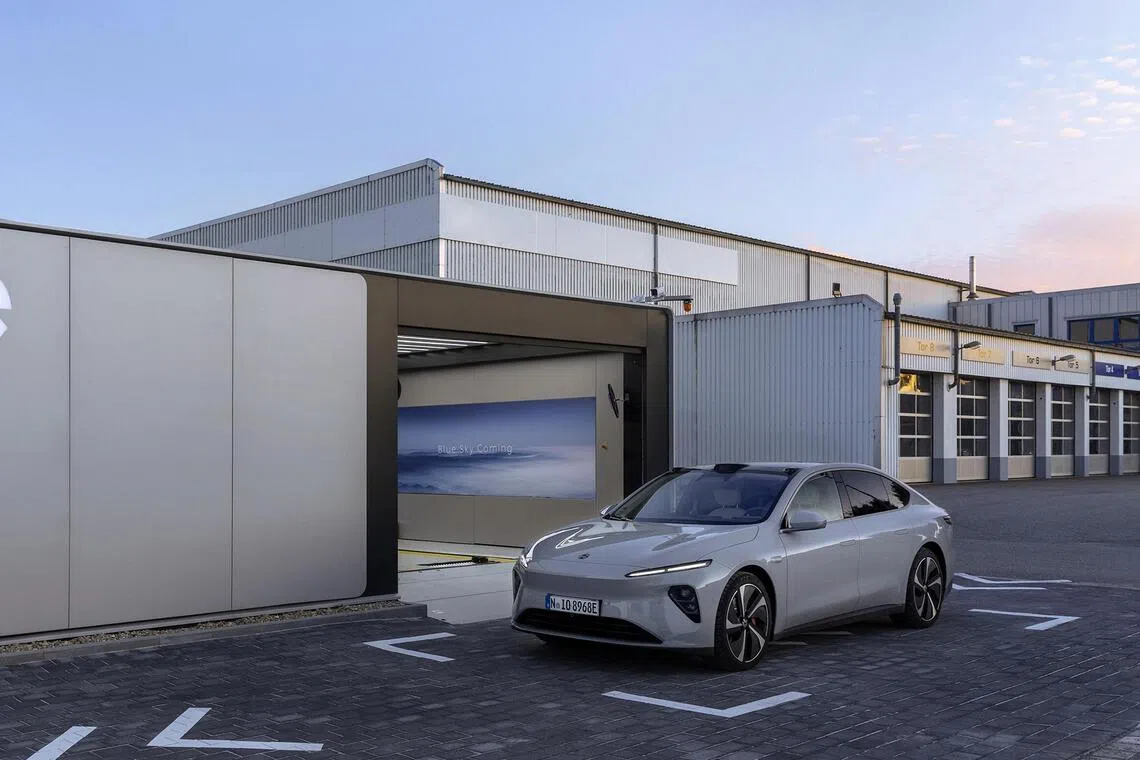GIC sues Chinese EV maker Nio, top execs for allegedly inflating revenues; shares plunge
Sign up now: Get ST's newsletters delivered to your inbox

GIC alleged Nio made false claims about its ties to an affiliated company called Nio Battery Asset – or Weineng in Chinese.
PHOTO: NIO
Follow topic:
HONG KONG – Singapore’s sovereign wealth fund GIC has sued Nio in a US court, accusing the Chinese electric vehicle(EV) maker and executives of violating securities laws by inflating revenues.
The lawsuit, filed in August in the Southern District of New York, named the company, its chief executive officer, Mr Li Bin, and former chief financial officer Feng Wei as defendants.
Nio’s Singapore-listed shares plunged on the news on Oct 16, falling as much as 13.8 per cent to US$6. The stock clawed back some ground to trade 8.1 per cent down at US$6.40 as at 2.48pm.
GIC alleged that the defendants made “materially false and/or misleading statements” about Nio’s ties to an affiliated company called Nio Battery Asset – or Weineng in Chinese – and failed to disclose key facts about its business and finances.
According to the complaint, those misstatements artificially inflated the value of Nio’s securities, causing GIC to suffer “significant losses”.
Nio operates a battery subscription model in which car buyers do not have to buy batteries outright. Instead, they can pay a recurring fee to access the company’s network of battery-swop stations.
GIC’s suit contended that Weineng’s financial records show that it bought batteries upfront from Nio, allowing Nio to immediately record the full revenue from those sales, even though the end users hadn’t yet paid for the batteries. The filing argued that such income should have been recognised gradually, not all at once.
Nio didn’t immediately respond to a request for comment. GIC declined to comment to Bloomberg.
The case has been stayed by a judge as it’s similar to a previous suit filed in 2022 against Nio, according to an Oct 3 filing.
Nio, founded in 2014, was once seen as a rising star in the EV industry that could eventually rival Tesla. It’s known for its battery swop technology, which allows owners to switch out a depleted battery for a new one in minutes. Buyers have the option to purchase a Nio EV without the battery and instead opt for a subscription.
But this business model is capital-intensive and has required building out expensive swopping stations, and the company has faced severe liquidity crises.
A 2022 report from New York-based Grizzly Research detailed these accounting practices. Nio said in response that it would launch an independent committee to investigate the claims, according to the court filings.
That led Nio’s American depositary notes to plunge, resulting in substantial losses, GIC’s filing said. The fund is seeking compensation for all losses relating to Nio’s wrongdoing and reasonable reimbursement of its legal costs, according to the documents.
GIC invested in Nio’s Series C round of fund-raising in March 2017 when it raised 600 million yuan (S$109 million).
The carmaker is also listed in the New York and Hong Kong. BLOOMBERG

